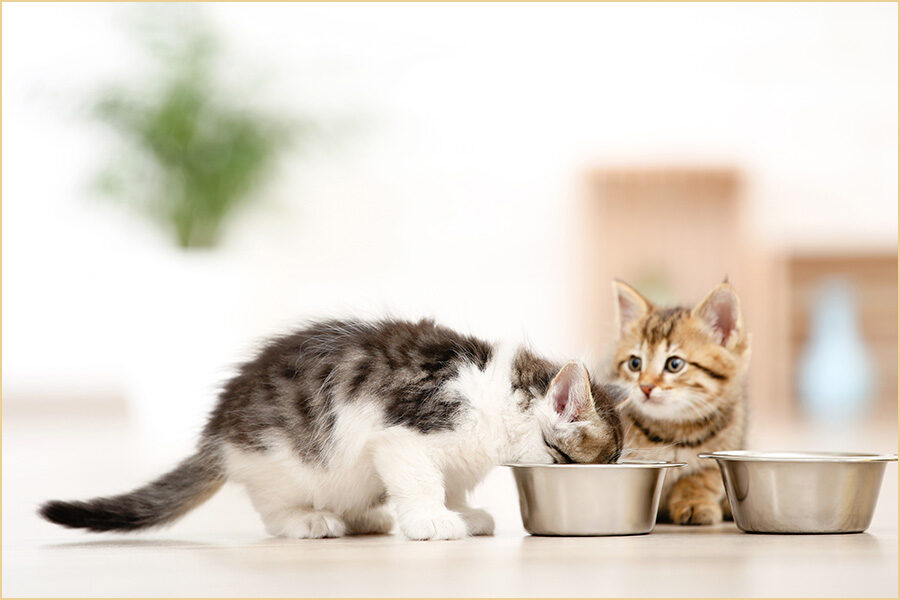Cats are affectionate creatures, and they bond with their human companions in loving ways. It is quite natural for cat owners to offer a portion of the food they are eating to their feline companions from time to time. They feel doing so only enhances the bond. While there are many ways of bonding with your beloved cat, sharing everything you want with the creature may not be a prudent thing to do. Some foods that are well tolerated by humans may not be suited for cats. In fact, some human foods can be downright toxic to cats.
Foods that you should never offer to your cat
Listed below are a number of foods that you should not offer to your cat at all.
Onion and garlic– You may be fond of using onion and garlic to cook sumptuous dishes, but these vegetables are not at all suited for your cat. Most cat breeds do not cope well with either of the vegetables. Kittens can develop food poisoning after consuming a small portion of onion as well.
Alcoholic beverages– Under any situation, do not offer any kind of beverage containing alcohol to your cat. It will not only impair the brain functioning of the creature, but some cats develop toxic reactions after consuming alcohol. It can also lead to fatal consequences in some instances.
Chocolates– Do not give Chocolates to your cats. Most chocolates contain ingredients like theobromine and caffeine, and these are toxic for cats. Cats develop vomiting, hyperactivity and seizures after eating chocolates.
Raw Dough– Never give uncooked bread dough to your cat. It can lead to excessive bloating and cause fermentation. It can make the cat seriously ill.
Raw Eggs– While you can offer cooked eggs to a cat, offering raw eggs is something you should not do. Doing so can lead to salmonella contamination in the cat. Cats may show symptoms like dehydration, fever, shock, and lethargy after getting afflicted by the Salmonella bacteria.
Caffeine– Even if you find the cat is acting lazy or needs a shot of energy, do not offer the creature coffee or caffeine laded beverages. Cats do not tolerate caffeine as well as humans. In fact, it can be toxic for their health.
Dairy foods– Now, this may catch you by surprise! You may have seen cats enjoying a bowl of milk or loving milk-based dishes. The reality is a lot of cat breeds are actually lactose intolerant. They may tolerate a spoonful of yoghurt but giving a cat enough milk or cheese may lead to stomach woes.
Raw meat– Do not offer any kind of half-cooked or raw meat to your cat. Uncooked beef and pork may contain bacteria like salmonella and E. Coli. This can damage your cat’s digestive tract and intestinal systems.
Grapes and Raisins– These fruits are recommended for humans, but they are not suited for cats. Cats have shown symptoms like vomiting and hyperactivity after chewing such dry fruits.
Potatoes– A grown-up cat may digest properly cooked potatoes as long as the serving size is not big. Sweet potatoes are not well tolerated by cats. They may react badly after eating raw green potatoes.
Conclusion
If you find your cat has swallowed a portion of food that is potentially harmful, watch out for side effects. If the food is toxic to the cat, do not delay and visit a vet.







